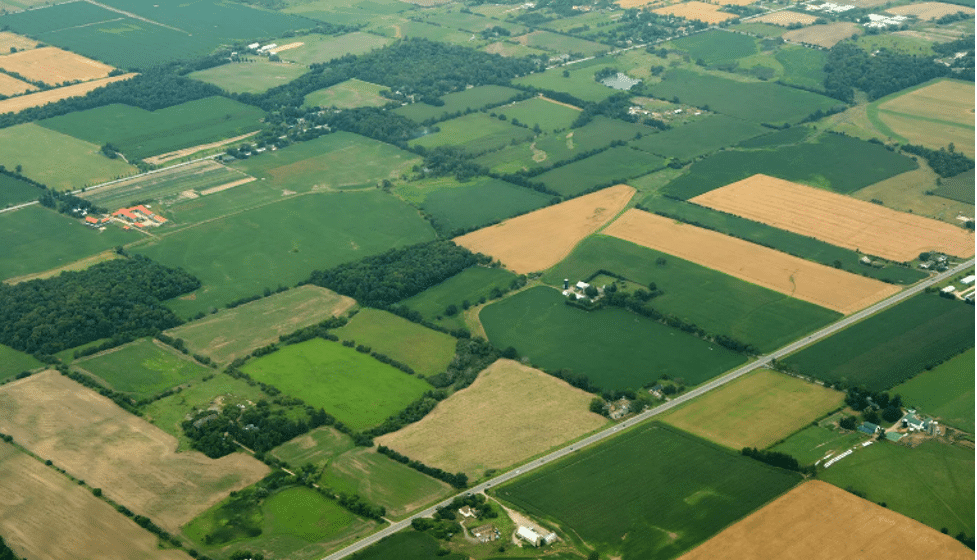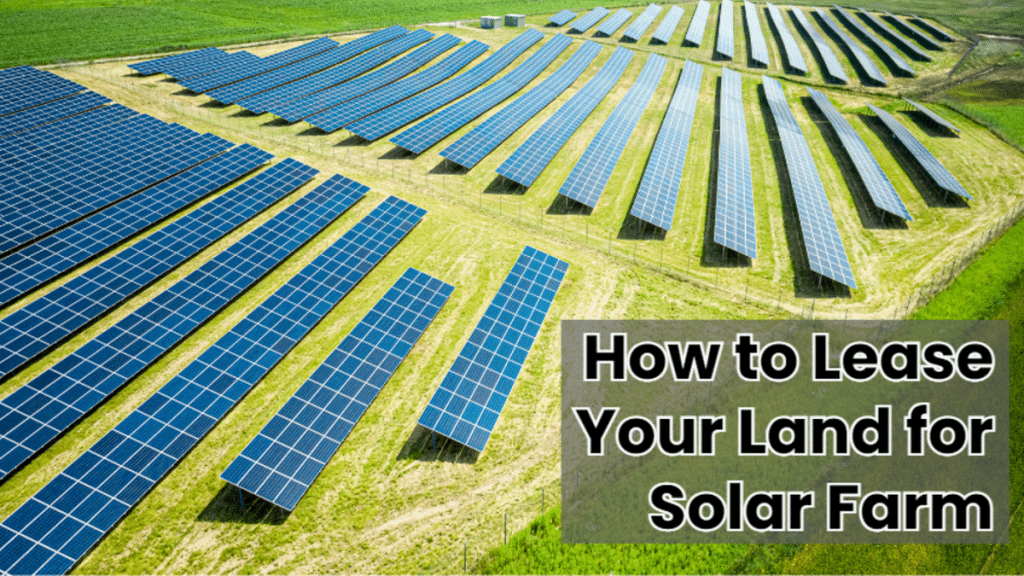Have you ever considered ways to use land that cannot be used for gardening or as a backyard, to benefit the community and the environment? Leasing your land to create a solar farm could be a great way to generate income and benefit the environment simultaneously.
Understanding the Benefits
Some benefits that one is likely to enjoy when leasing his or her land for the establishment of the solar farm include. Firstly, total return from property investment is more predictable than other types of investment and most leases have been agreed for about 20 to 25 years.
Secondly, investing in renewable energy means that one is playing a part in the fight against climate change and the promotion of sustainable energy instead of non-renewable energy sources like those that are derived from fossil fuels.
Assessing Land Suitability

When you want to lease land to solar farm, you should first identify whether your land qualifies to offer space for the solar farm. Several factors influence land suitability for solar projects, including:
Location:
Traditional and preferred sites are ideally located where solar irradiation levels are high and in proximity to electricity grids. The availability of land and its availability near the transmission lines and substations is another major factor that determines the feasibility of constructing the solar farm and the overall cost of integrating the solar farm into the power grid.
Size
Solar plants take up a lot of space; common sizes for them are manufactured starting from 10 acres, although they can reach hundreds of acres depending on the power station’s scale. Ensure your land is large enough to meet the standards of potential developers.
Topography
Plain or slightly inclined areas are desirable as this would make installation easier and ensure the solar panels get the optimal amount of sunlight. If the land is hilly or has any kind of slope, construction is likely to be difficult and the effectiveness of solar panels may be limited.
Land Use and Zoning
Check the zoning laws to ensure your land meets all the requirements for installing a solar energy system. Some locations may have ordinances governing land use and solar farm lease rates per acre, which can restrict your ability to lease the land for a solar farm.
Environmental Considerations
Identify if there is any environmental issue that would hinder the project; for instance, there could be wetlands, endangered species, or any ecological concerns in the site where the project is supposed to be implemented. In most cases, developers take environmental impact assessments to verify whether their projects are in order regarding the environment.
Finding a Developer
Once you’ve decided to develop a solar farm on your land, the next step is to find a reputable developer. Solar developers are those organizations that engage in the development of solar projects including designing or even constructing them to be operated by other people. To find the right developer:
Research:
When searching for developers, it’s important to identify companies with experience in successful solar projects. Other sources such as Web-based articles, company and industry newsletters, and local government offices may offer useful information regarding certain companies.
Networking
Professional renewable energy conferences, seminars as well as local forums, let’s build rapport with other developers and other landowners who have leased their land for solar farm development. Networking can provide insight into the experience of leasing land to solar companies and offer useful tips.
Proposals
In agreement with the given problem, it is necessary to contact several developers and ask for proposals. Include information regarding the length, lease rate, project plan, and other concerning factors of the intended projects of their competitors. This will put you in a better position to make correct decisions on what to go for with your queen of the south.
Negotiating the Lease Agreement

Signing a lease is a crucial process when leasing your land for a solar farm. When a lease has been negotiated, and all the parties agree, then everyone is settled for, and secure. Key aspects to consider during negotiations include:
Lease Term
Lease terms typically range from 20 to 25 years with options to renew at the end of the initial contract. It is always important to see that the term of the lease is right for your current and future business venture.
Lease Payments
This can be accomplished in the form of annual fixed payments, as a percentage of the fiscal revenue of the solar farm, or a combination of both. Understand how payments work to ensure you’re not overspending or underspending according to your financial goals.
Upfront Payments
A few developers provide bonuses or initial payments on signing leases for the property under the lease agreement. These payments offer an opportunity to derive quick gains in the short run.
Maintenance and Responsibilities
Determine who is in charge of the care and management of the solar farm and the land in which it is located. Maintenance is typically the responsibility of the developer, but this should be clearly stipulated in the contract.
Land Restoration
Land restoration should be listed as one of the requirements to be complied with when the legal lease term expires. It also involves ensuring that the land reverts to its natural state in the event of the solar farm’s closure.
Liability and Insurance
Consider risks related to legal claims and ensure the developer carries the necessary insurance to guard against any potential losses or mishaps.
Navigating the Permitting Process

As the landowner, you have the right to grant access or approve any entity wishing to lease your land for solar farming, which involves specific authorization procedures. The developer typically handles most of these processes, but understanding the key steps can keep you informed:
Environmental Assessments
Environmental considerations: Developers undertake studies to assess the environmental impact and make arrangements to minimize it. This may call for contacting environmental departments and receiving relevant endorsements.
Zoning and Land Use Permits
Ensure the project complies with local zoning codes and land use permits. The process might include public forums or discussions with the local representative bodies.
Interconnection Agreements
The developer will obtain permission from authorities to establish interconnection with the utility companies for the connection of the solar farm to the main electricity supply. This process can be divided into two parts: technical and regulatory clearances.
Key Considerations for Long-Term Success of Leasing Land for a Solar Farm
| Aspect | Consideration Summary |
| Monitoring and Maintenance | Ensure the developer regularly maintains and monitors the solar farm to keep panels efficient and promptly address technical problems. |
| Lease Compliance | Stay updated with lease obligations and address any potential breaches as needed to prevent conflicts. |
| Community Relations | Foster good relations with community stakeholders, addressing issues as they arise and highlighting benefits like job creation and tax income. |
| Future Planning | Consider future plans for your land and communicate with the developer to discuss specific scenarios or potential lease amendments. |
Conclusion
Renting your land for a solar farm is a major conflict that has the potential to create value and at the same time play a vital role in the advancement of renewable power sources. Navigating the process of selecting and developing land for solar farm leasing is easier when the right steps are followed effectively.
FAQs
1. What is the most important advantage of leasing my land for a solar farm?
Experts argue that leasing your land is beneficial for your finances, the environment, and contributes to a green energy future.
2. How can one know if the land it owns is the right one for constructing a solar farm?
Land selection factors include a flat terrain, high levels of solar insolation, proximity to existing or proposed power facilities and infrastructures, prescribed land size, and legal restrictions.
3. How do I identify a reliable solar developer?
One must search the internet regarding renewable energy, attend various renewable energy conferences, interact with other landowners, and finally.

